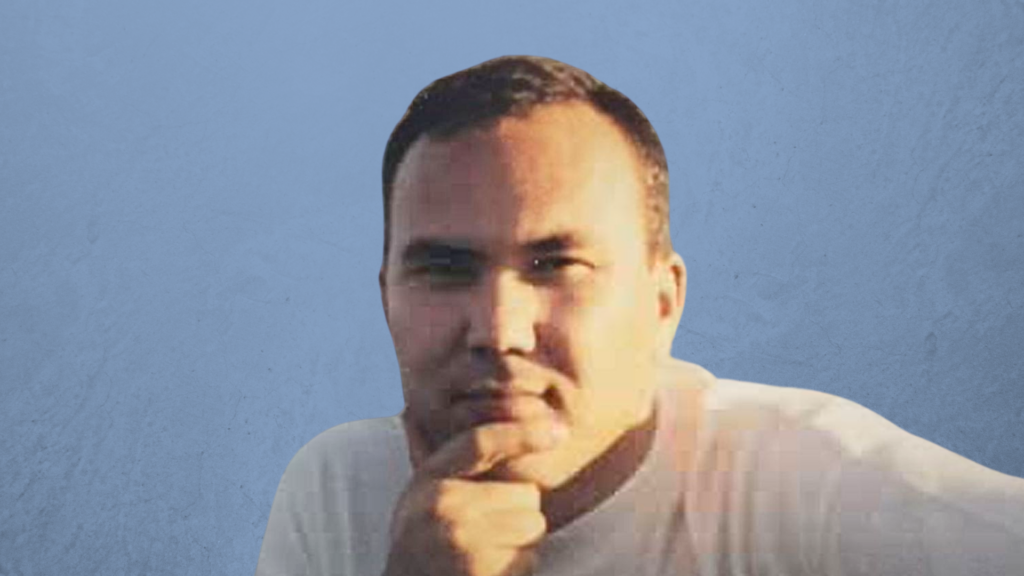Learning From the Deportation and Imprisonment of Huseyin Celil, Uyghur-Canadian Imam

March 27, 2024
A UHRP Insights column by Henryk Szadziewski, Director of Research, Uyghur Human Rights Project
Over eighteen years ago, Canadian citizen, imam, and Uyghur human rights activist, Huseyin Celil took a trip to Uzbekistan with his wife, Kamila Telendibayeva, to visit relatives. On March 27, 2006, Uzbek police arrested him. Canadian officials were able to visit Huseyin while he was detained in Uzbekistan. However, in June 2006, he was deported to China at Beijing’s behest and despite Canadian government appeals for his release.
China wanted Huseyin returned to face charges of terrorism; however, Amnesty International stated he was “falsely accused… of serious offences because of his activities in support of Uyghur rights.” On April 19, 2007, the Uyghur Human Rights Project (UHRP) revealed the Intermediate People’s Court of Ürümchi had handed Huseyin a life sentence on charges of “terrorist activities” and “plotting to split the country.”
In China, as a “young imam [he] was accused of using a megaphone to amplify the call to prayers at his mosque, standard practice in most Muslim countries.” This action landed him in prison. Persecution of Uyghur imams is common practice in China, as documented in a 2021 UHRP report. In the mid-1990s, Huseyin Celil fled China through Central Asia.
Huseyin later sought asylum with the United Nations High Commissioner for Refugees (UNHCR) in Turkey. After he gained refugee status, the Canadian government admitted him in 2001. Huseyin became a Canadian citizen in November 2005 and settled in Hamilton, Ontario, with Kamila and three of their six children. He worked as a delivery man and cook. The Chinese authorities blocked the emigration of his three other children to Canada. In June 2006, the month of his deportation, Kamila was expecting their seventh child.
Huseyin spent much of his early imprisonment in China in solitary confinement, with inadequate nutrition and declining health. On February 1, 2016, the court revised his sentence from life imprisonment to 19 – 20 years. His mother and sister, who live in China, were permitted biannual visits until 2016, when these visits abruptly ceased. Despite requests from Canadian officials, the PRC Ministry of Justice has never granted consular access, as is required under bilateral treaties and international law, refusing to acknowledge his Canadian citizenship.
In October 2021, Kamila spoke to Canadian television, urging the Canadian government to boycott the 2022 Winter Olympics unless China releases Celil and allows him to return to Canada. Kamila also expressed anguish at not receiving any updates on her husband’s case from Canadian officials since 2015. This follows earlier criticism of Canada’s position that China has a “right to level charges against Mr. Celil.” In 2022, citizens petitioned Canada’s House of Commons seeking renewed action to secure Huseyin’s release.
Huseyin Celil’s case was among the first UHRP shared with the world. Founded only two years before his arrest, UHRP’s efforts to advocate for Huseyin’s release highlight several issues that 18 years later have become core to the crimes against humanity occuring in the Uyghur region. Deportations, disappearance, torture, imprisonment, and religious repression have become systemic to the extent that entire databases are given over to document the hundreds of thousands of victims.
Two decades of international condemnation
UHRP was far from the only organization acting on Huseyin Celil’s distressing case. For nearly 20 years, head of the Canadian group the Uyghur Rights Advocacy Project, Mehmet Tohti, has spoken out for Huseyin’s release. Amnesty International, Human Rights in China, Human Rights Watch, World Uyghur Congress, as well as the Congressional-Executive Commission on China and US Congress, all brought the case to the world’s attention. Campaigns for his release highlighted his rights as a bona fide refugee, a citizen of Canada, a person of faith, and a nonviolent political prisoner. After the 2021 release of the “two Michaels,” Canadian citizens Michael Kovrig and Michael Spavor, who spent three years in arbitrary pre-trial detention in China on unsubstantiated charges of espionage, Huseyin was called the “forgotten Canadian.”
The lack of international pressure over Huseyin Celil’s deportation and imprisonment may have been a missed chance to catch in its early stages human rights abuses that have developed into crimes against humanity. That’s a tough sentence to read. However, Huseyin’s plight was not isolated. The 2005 imprisonment of Uyghur author Nurmemet Yasin, 19 years ago, is a precursor to the current eliticide of Uyghur intellectuals and cultural elites. In a 2021 essay, my colleague, Zubayra Shamseden, describes in heart wrenching detail the torture of her sister, Saliha, and her brother, Abdurazzak, 27 years ago. There are many other examples.
This year marks the 20th anniversary of the establishment of the Uyghur Human Rights Project, a milestone year prompting reflection on two decades dedicated to documenting atrocities faced by Uyghurs.
One of our primary objectives for UHRP20 is to understand how to recognize early indicators of crimes against humanity. Throughout the past two decades, UHRP has meticulously recorded evidence of political, civil, economic, cultural, and social rights violations. This year provides an invaluable opportunity to ponder the insights gained and address shortcomings within current systems for detecting and preventing atrocities.
In the horrific sufferings of Huseyin Celil, Nurmemet Yasin, and Saliha and Abdurazzak Shamseden, now approaching 20 years or more, trampling of basic rights, liberty, and safety are laid bare. In the wide sweep of Chinese government policies, then and now, we see how the precursors of a genocide developed into the emergency that is with us today.
